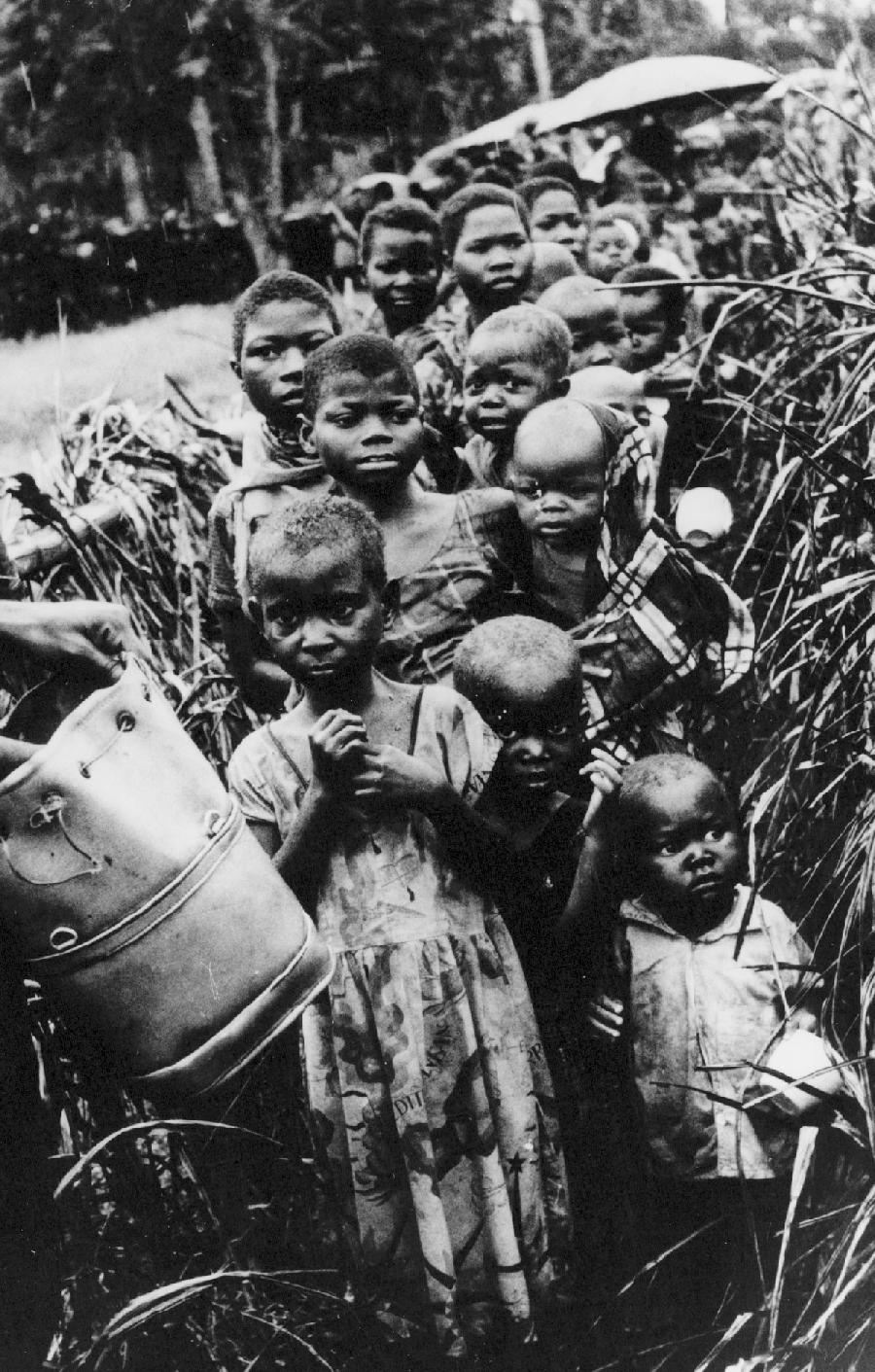
Figure 1.--Food becme a major problem for Biafra after declaring independence from Nigeria (1967). Here children and adults line up for their food ration to be delivered. The photograph is not dted, but was probanly taken in 1968. |

|
The most serious outbreak of ethnic and regional cobflict was the deadly Biafran War also called the Nigerian Civil War. This occurred only a few years after independence (1967-70). Three southeastern states secede as the Republic of Biafra (July 6, 1967). The Igbo people aspired for their own independent state. The Christian Igbo leadership felt that they could no coexist with the Northern-dominated and Muslim-influence Federal government. The conflict was the result of political, economic, ethnic, cultural and religious tensions which predated indeoendence. The precipitaying evenys was the 1966 military coup, a counter-coup, and ongoing persecution of Igbo living in Northern Nigeria. Control over oil production in the Niger Delta have the Igbo a vital strategic asset. The Igbo manaaged to seize control of the three state which they dominated, but meanwhile Federal forces
managed to surrounded Biafra, capture the coastal oil facilities, and the important port city of Port Harcourt. This enabled the Federal forces to blockae Biafra. which was not self sufficient in food producrion. This meant that the Biafrans could not imprt neeed weapons and amunition, but msr disaterouly the food needed by the population. A terrible famine resulted. Starvation became an important strategy of the Federal Government. Some two million Biafran civilians are believed to have perished from starvation and diseases. The War was not closely followed in the Wst until photigraphs of malnourished and starving children suddenly appeared in th international press (mid-1968). The tragedy of starving Biafran children became a cause c�l�bre. Iinternational non-governmental organisations raised mpney for a relief effort. Britain and the Soviet Union backed the Federal Military Government in Lagos. France and some non-govermental groups supported Biafra. The Biafras managed to smuggle some arms in, but this became increaingly difficulr as they lost territory. Finally Biafran leaders surrendered (January 15, 1970) and the three secesionist states are reintegrated into the country (1970).
Navigate Children in History Website:
[Return to the Main Nigerian independent history page]
[Return to the Main Nigerian history page]
[Return to the Main African country history page]
[About Us]
[Introduction]
[Biographies]
[Chronology]
[Climatology]
[Clothing]
[Disease and Health]
[Economics]
[Freedom]
[Geography]
[History]
[Human Nature]
[Law]
[Nationalism]
[Presidents]
[Religion]
[Royalty]
[Science]
[Social Class]
[Bibliographies]
[Contributions]
[FAQs]
[Glossaries]
[Images]
[Links]
[Registration]
[Tools]
[Children in History Home]
Navigate the Boys' Historical Clothing national pages:
[Return to the Main Nigerian page]
[Return to the Main African page]
[Angola]
[Benin]
[Cape Verde Islands]
[Cameroon]
[Chad]
[Democratic Republic of the Congo]
[Ethiopia]
[Gabon]
[Ghana]
[Lessotho]
[Madagascar]
[Mali]
[Niger
[Nigeria]
[Somalia]
[South Africa]
[Togo
[Uganda]
